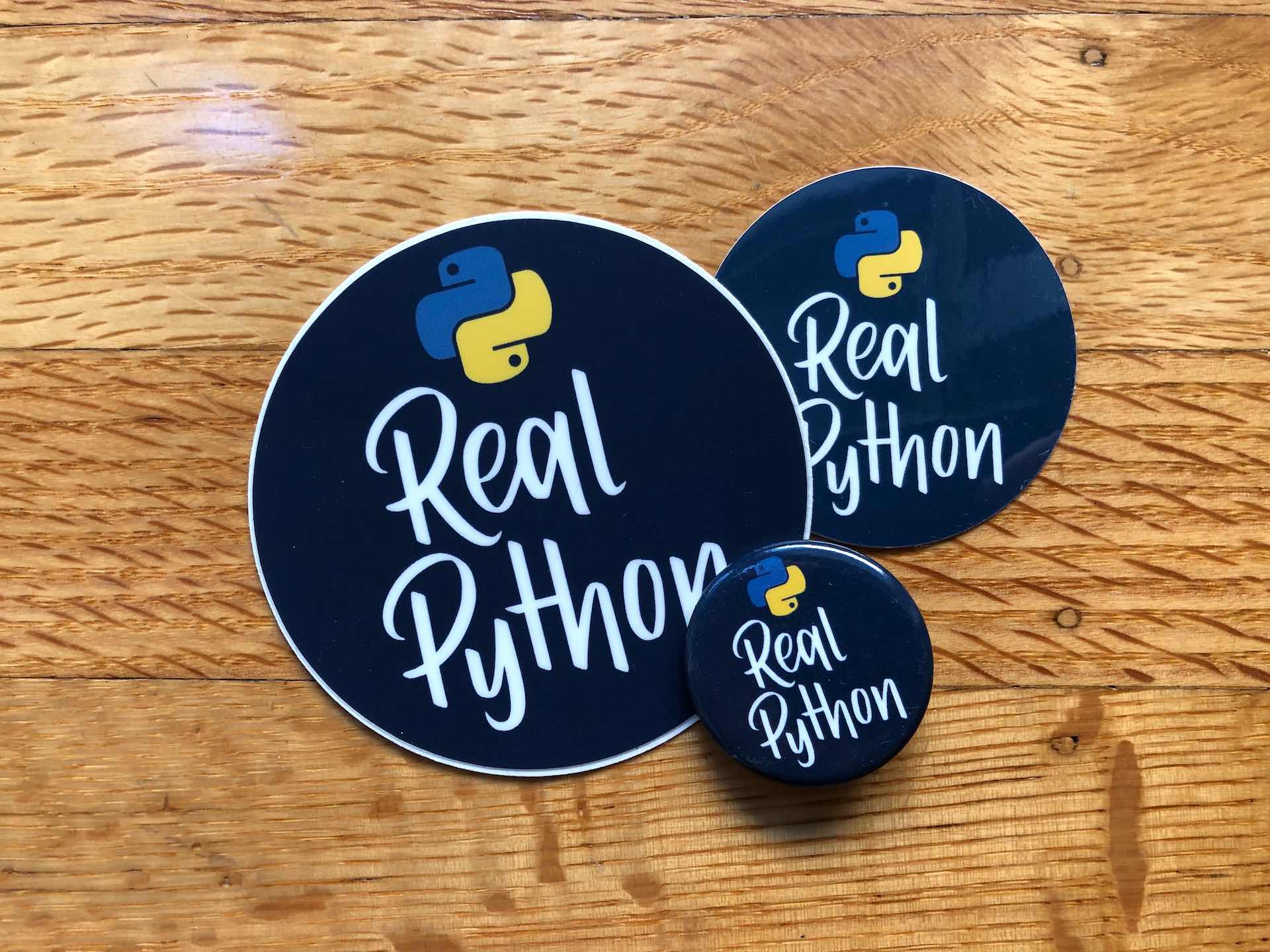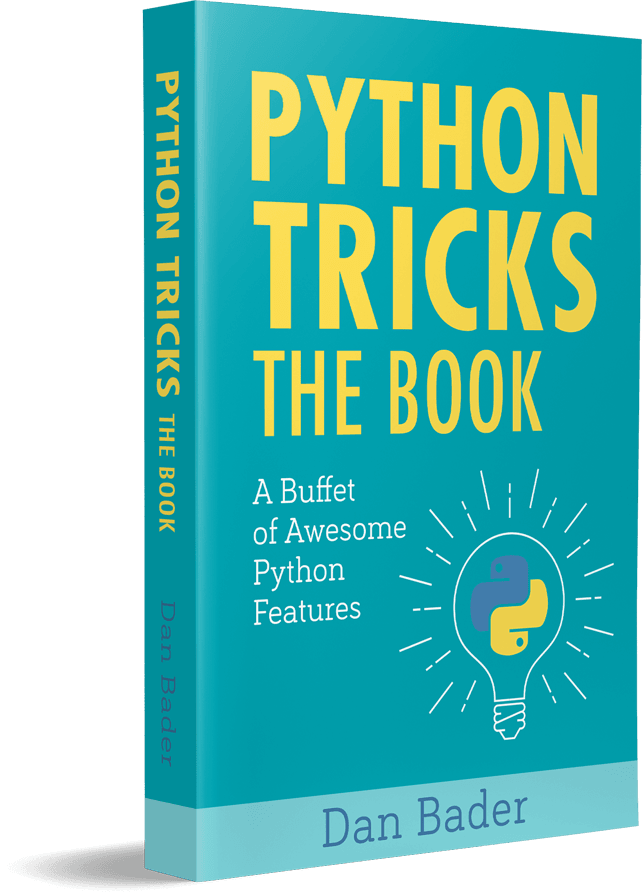Congratulations! You’re going to PyCon US!
Whether this is your first time or you’re a regular attendee, going to a conference full of people who love the same thing as you is always a fun experience. There’s so much more to PyCon than just a bunch of people talking about the Python language—it’s a vibrant community event filled with talks, workshops, hallway conversations, and social gatherings. But for first-time attendees, it can also feel a little intimidating. This guide will help you navigate all there is to see and do at PyCon.
PyCon US is the biggest conference centered around Python. Originally launched in 2003, this conference has grown exponentially and has even spawned several other PyCons and workshops around the world.
Everyone who attends PyCon will have a different experience, and that’s what makes the conference truly unique. This guide is meant to help you, but you don’t need to follow it strictly.
By the end of this article, you’ll know:
- How PyCon consists of tutorials, conference, and sprints
- What to do before you go
- What to do during PyCon
- What to do after the event
- How to have a great PyCon
This guide contains links that are specific to PyCon 2025, but it should be useful for future PyCons as well.
Free Download: Get a sample chapter from Python Tricks: The Book that shows you Python’s best practices with simple examples you can apply instantly to write more beautiful + Pythonic code.
What PyCon Involves
Before considering how to get the most out of PyCon, it’s first important to understand what PyCon involves.
PyCon is divided into three stages:
-
Tutorials: PyCon starts with two days of three-hour workshops, during which you learn in depth with instructors. These sessions are worth attending because the class sizes are small, and you’ll have the chance to ask instructors questions directly. You should consider going to at least one of these if you can. They have an additional cost of $150 per tutorial.
-
Conference: Next, PyCon offers three days of talks. Each presentation runs for 30 to 45 minutes, and around five talks run concurrently, including a Spanish-language charlas track. But that’s not all: there are open spaces, sponsors, posters, lightning talks, dinners, and so much more.
-
Sprints: During this stage, you can take what you’ve learned and apply it! This is a four-day exercise where people group up to work on various open-source projects related to Python. If you’ve got the time, going to one or more sprint days is a great way to practice what you’ve learned, become associated with an open-source project, and network with other smart and talented people. If you’re still unconvinced, here’s what to expect at this year’s PyCon US sprints. Learn more about sprints from an earlier year in this blog post.
Since most PyCon attendees go to the conference part, that’ll be the focus of this article. However, don’t let that deter you from attending the tutorials or sprints if you can!
You may learn more technical skills by attending the tutorials rather than listening to the talks. The sprints are great for networking and applying the skills you already have, as well as learning new ones from the people you’ll be working with.
What to Do Before You Go
In general, the more prepared you are for something, the better your experience will be. The same applies to PyCon.
It’s really helpful to plan and prepare ahead of time, which you’re already doing just by reading this article!
Look through the talks schedule and see which talks sound most interesting. This doesn’t mean you need to plan out all of the talks you’ll see in every slot possible. But it helps to get an idea of which topics will be presented so that you can decide what you’re most interested in.
Getting the PyCon US mobile app will help you plan your schedule. This app lets you view the schedule for the talks and add reminders for those you want to attend. If you’re having a hard time picking which talks to attend, you can come prepared with a question or problem you need to solve. Doing this can help you focus on the topics that are important to you.
If you can, come a day early to check in and attend the opening reception. The line to check in on the first day is always long, so you’ll save time if you check in the day before. There’s also an opening reception that evening, where you can meet other attendees and speakers and check out the various sponsors and their booths.
If you’re new to PyCon, the Newcomer Orientation can help you learn about the conference and how you can participate.
Because of the COVID pandemic, which caused PyCon 2020 and PyCon 2021 to go remote, extra health and safety guidelines are still in place for this year’s PyCon conference. For the first time since 2022, masks are encouraged but not required, especially in crowded or enclosed spaces. Stay safe!
Recap: Here’s what to do before you go:
- Look at the talks schedule.
- Get the PyCon US mobile app.
- Come up with a specific question that you want answered.
- Check in the day before the conference begins.
- Review the health and safety guidelines.
What to Do at PyCon
It’s okay if you’re nervous or excited on your first day at the conference.
There will be a lot of different people from all walks of life, and that’s what makes it so great. You may see some of your Python heroes, such as Guido van Rossum, and have a chance to go up to them and say hello.

The Python community is very welcoming! But there are also some designated quiet rooms where speakers and others will go to work in peace. You should refrain from talking to anyone in those rooms to allow them that safe space.
You can break down the conference into some key elements to see how you can get the most out of them:
- Talks
- Open spaces
- Sponsors
- Volunteer opportunities
- After-hours activities, including lightning talks
- Time for yourself
Talks
Go to as many of the talks as you want, but you don’t need to attend them all. You’ll only get stressed as you run from room to room. Instead, ensure you hit up the talks you selected before coming. Although it’s rare, the schedule can change, so check the schedule board daily to catch any changes.

If there’s a conflict between two talks you want to attend, remember that all presentations are recorded and uploaded to YouTube. Sometimes, they’re even available that same day! Pick the talk that will be the most relevant to your situation and seems the most interesting to you. Then take note of the talk you’ll miss, and watch it later when you have some free time.
Even though all talks are available online, attending in person is still valuable. You’re more likely to retain the information, and you’ll have the chance to ask the presenter questions directly.
Remember, you don’t need to see all the so-called celebrity speakers. While they may get more attention in the Python community and seem like must-see sessions, every talk at PyCon goes through a rigorous selection process, ensuring that all speakers and topics are worth your time.
Sometimes, it’s better to see some less famous speakers because you can get better seats and have a greater chance to ask questions.
Remember to silence your phone and computer when you go to a talk. Noise can be very distracting to the audience and the speaker. Consider putting away your devices altogether and simply listening or taking notes with pen and paper.
Also consider thinking of questions related to the topic being discussed. Typically, there’s time set aside at the end for audience questions. If that time isn’t available, the presenters are usually very willing to answer questions in the hallway afterward.
Recap: Here’s what you need to know about talks at PyCon:
- You don’t need to go to every talk—all sessions will be available on YouTube.
- All talks and speakers are amazing.
- Keep noise to a minimum by silencing your devices.
- Think of questions to ask.
- Talk with speakers afterward.
Open Spaces
Open spaces are rooms that conference attendees can book. One-hour time slots are available throughout the day for anyone who wants to use them. These rooms are used to teach people, hold meetups, and even do yoga classes. They’re open for whatever activities you need them for, as long as you follow the Code of Conduct, of course.

You may want to visit these open spaces instead of a talk or a sponsor booth. Check out the open space board daily since it constantly changes. It’s a good idea to take a picture of the board to reference later.
Feel free to create your own open space. Remember that problem or specific question that you were looking for help with? Sign up for a room and ask for advice on that topic! You never know who might show up to help out.
Real Python hosted open spaces at PyCon in 2019 and 2022. They were great events with existing members and people who didn’t know us very well. We won’t be hosting an open space this year, but you should definitely check out some of the other exciting get-togethers happening at the conference.
If you’re an expert or have some limited knowledge about a topic you want to share, feel free to grab an open space for that as well! These spaces are intended to be whatever you want or need them to be, so don’t be shy about using them.
Recap: Here’s what you need to know about open spaces at PyCon:
- Open spaces can be whatever you need them to be.
- Use an open space slot to ask for help.
- Use an open space slot to teach others.
Sponsors
Visiting sponsors is a great way to get to know some of the companies that are using Python in their everyday workflows. There are some very big names that come almost every year: Microsoft, JetBrains, and Google, to name a few. At PyCon 2025, there will be about ninety-five sponsors! Going to a sponsor booth is great for many reasons, not just for the wonderful swag that everyone gives out. Here are a few of our favorites:

The greatest thing about sponsors being there is that you can speak with the actual developers of the tools and software you use. Say you have a problem with an Anaconda install on a Windows environment. You can go straight up to the Anaconda booth and ask questions! This is a great opportunity to talk to the developers and creators of the tools you use.
It’s not just developers that you get to meet, either. There are authors and content creators who come too. Walk the floor and strike up conversations. You’re bound to meet lots of interesting people.
Finally, meeting with the sponsors could lead to a job opportunity. Many sponsors are also looking for talented Python developers, and you can apply with them directly at their booths or during the job fair, which happens toward the end of the conference. If you’re not looking for a job, it’s still great to see what’s out there and what skills these companies are looking for to help you choose where to focus your learning.
Recap: Here’s what you need to know about sponsors at PyCon:
- Getting sponsor swag is great.
- Meeting with the developers and content creators is even better.
- You can apply for a job or see what skills companies are looking for.
Volunteer Opportunities
Have you ever wished you could contribute or give back to the Python community? Well, you can at PyCon.
So much work goes into making a conference happen, and none of it would be possible without volunteers. PyCon 2025 is looking for over 300 hours of on-site volunteer support!!
That sounds like a lot, but there are small ways you can make a difference. An hour or two of your time can be a big help, without taking away from your learning time. You also never know who you might rub shoulders with as a volunteer. You can learn more about helping out in the call for on-site volunteers. As you’ll see, there’s a little something for everyone.
Recap: Here’s what you need to know about volunteering at PyCon:
- Just Do It.
- Really, Just Do It!
After-Hours Activities
Even though the conference ends in the early evening, there’s still more to do after the conference wraps up for the day.
The first thing you should check out, even if only for a little while, is the lightning talks. These are five-minute slots available for anyone to share their knowledge on a topic. The talks span a wide range of subjects, from new open-source projects to social commentary and philanthropy. Did you know that Docker was first publicly announced during a PyCon lightning talk? The lightning talks have become a popular staple for regular attendees.
Also, be on the lookout for sponsors doing sponsored dinners with members of their company. This is a great way to build up your network and get a free dinner as well. PyCon does host dinner parties in the evenings, but these cost money and typically sell out really quickly.
Even if you don’t get in on the official PyCon dinners or the sponsored ones, there’s always plenty to check out near the conference. Each conference location is selected in part because of the interesting things nearby. When you’re getting ready for the conference, look for fun places to eat. You’ll find that downtown Pittsburgh has plenty.
Recap: Here’s what you need to know about after-hours events at PyCon:
- Check out the lightning talks.
- If there are spots available, sign up for one of the official PyCon dinners.
- Check early and often for any sponsored dinners.
- Have fun exploring the local cuisine and culture.
New Friends
One of the most significant pieces of advice for going to PyCon is to make a new friend each day.

The lunch and snack breaks are some of the best times to get to know someone at PyCon. Instead of trying to pick an empty table, find one that already has a person or two and ask if you can join them.
Strike up a conversation about their favorite talk so far, or how they use Python in their day-to-day activities. Before long, you might find you’ve made a new friend. You can take a few notes about your conversation, whether mentally or literally, so that you can remember that person later on.
To stay in touch with the people you meet, consider creating business cards that include your contact information. Additionally, update any profiles you share, such as LinkedIn or GitHub.
Recap: Here’s what you need to know about making new friends at PyCon:
- Challenge yourself to meet at least one new person each day.
- Make a quick note of who you meet so you don’t forget.
- Bring business cards to share with the people you connect with.
What to Do After PyCon
Once the conference is over, there’s still a lot you can do. First off, if you have the time, there are the dev sprints, which are an excellent opportunity for you to hone your skills and even gain new ones as a Python developer. They last four days after the conference, but you don’t need to stay the entire time. Stay for as long as you like, whether for a few hours or the duration.
After you get home, check out the YouTube videos of talks you missed or want to rewatch. You can also check out all of the tutorials, keynote speaker talks, and even the lightning talks on YouTube. There’s plenty there to get your PyCon fix throughout the year.
The greatest thing about PyCon is the feeling of belonging to a community. That’s only made possible by the great people who give back to the Python community, and you can become one of them!
There are lots of ways that you can give back to this great community:
- Contribute to an open-source project that uses Python.
- Join a local Python meetup group. Don’t have one? Create one!
- Share with others what you’ve learned.
- Submit a talk or poster for next year’s PyCon.
Finally, you can start preparing for the next PyCon. You get a discounted price when you purchase tickets early, but those tickets tend to sell out quickly. To prepare for which talks to attend at the next PyCon, you can start taking note of any problems or questions you run into throughout the year. They can help you choose which talks to attend next time.
Recap: Here’s what you need to know about what to do after the conference:
- If you have time, stay for the sprints.
- Check out the YouTube videos of the talks that you missed or loved.
- Look for a way to contribute to the Python community with what you learned.
- Start looking at next year’s PyCon.
Welcome to the Greatest Community!
Congratulations! You’re about to attend one of the greatest technical conferences out there, and you’re well-equipped to make the most of your time there.
In this article, you learned:
- What PyCon is all about
- What you can do before going to PyCon
- What you can do at PyCon
- What you can do after PyCon
With the tips in this article, you’ll be able to have a great PyCon. We look forward to seeing you there!













